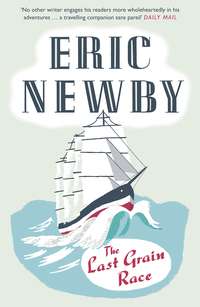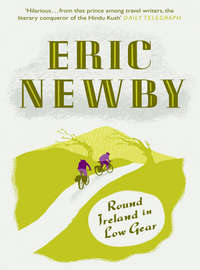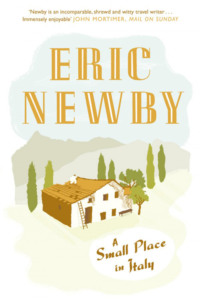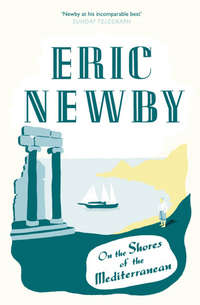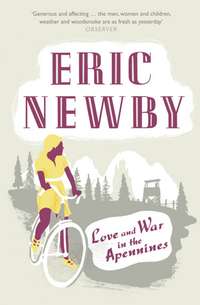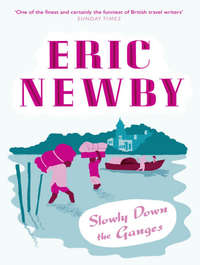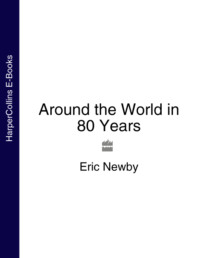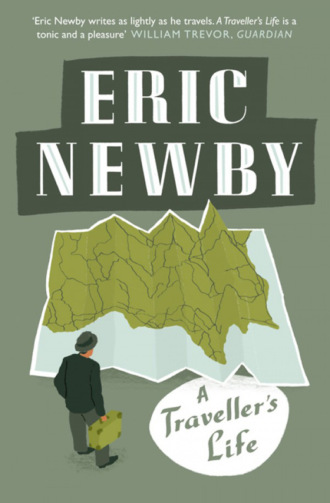
Полная версия
A Traveller’s Life
Whether it was in pursuit of whatever she was in pursuit of, or we were simply on a new, adventurous walk, on the afternoon on which the happenings which led up to my nightmare took place, Lily pushed me in the mail cart up the towing path from Hammersmith Bridge as far as Chiswick Ferry. The ferry was for foot passengers only, and when it functioned at all, which was rarely, they were conveyed across the river by a ferryman in a rowing-boat. Having reached the ferry, as she usually did, Lily turned left down a narrow, unmetalled lane between two reservoirs from which it was separated by iron railings. This lane led to Lonsdale Road, the road up which the police used to push the drunk and disorderly on their handcart to Barnes Police Station. At Lonsdale Road she normally turned left for Hammersmith Bridge and home along the pavements. But on this particular day instead of doing this she crossed Lonsdale Road and continued to follow the alignment of the lane into what was, for me, unknown territory.
It was an eerie place. To the left of the lane, which was also unmetalled, a rather dreary expanse of fields with a farmhouse on the edge of it, what must have been one of the nearest farms to central London, stretched away towards the semi-detached developments that but for the war would have already engulfed them, as they would shortly. In these flat fields, some distance off, a line of what looked like men but I later discovered when I was older were rough-looking women wearing cloth caps and sacks in lieu of aprons, worked away, bent double among the vegetables.
To the right of the road a rusty corrugated-iron fence, its top cut into cruel, jagged spikes and festooned with brambles and old man’s beard (an appropriate weed for Lily, perhaps, in the circumstances), separated it from the adjoining property, and along it a line of trees, possibly willows, with thick pollarded trunks grew, or rather rotted, for most of them were in the last stages of decay. The surface of the road was full of potholes with water in them, and in the ditches on either side was some of the detritus of civilization, what the French more expressively call ordures – broken lavatory pans, rusty oil drums, bits of bicycles and prams, broken shoes, awful items of discarded clothing, bundles of sodden newspaper, broken glass. It was certainly no place for a nanny and a small child in a mail cart. Some five years later, when I was at Colet Court (a London preparatory school), my favourite museum was the Imperial War Museum in South Kensington and there in the picture gallery I saw dozens of similar roads, only the potholes in the pictures were shell-holes and the trees had been shattered by gunfire, all painted by war artists on Flanders and other fields. It was therefore not surprising that when the fields were finally built over some years later and the lane became a respectable suburban road, whoever was in charge of naming roads in Barnes gave it the name it bears today, Verdun Road.
Against the largest and most decayed of these ruined trees a fire was burning, eating its way into the heart of it, and sitting close to the fire, although it was late afternoon it was still warm, were three of the hideous hags who, when the tide was right, slept up against the abutments under Hammersmith Bridge. And on the fire was an iron pot. It would have been impossible for anyone to say how old these creatures were. They were so blackened by smoke and smeared with filth that it was difficult to identify them as human beings. One of them was singing in a wild, tuneless mindless way and another was screeching at the third member of this ghastly triumvirate, while picking away like a monkey in her long, lank hair. The third one was tending the pot.
As we came abreast of them, the one who was looking for lice or nits in her companion’s hair (for that is what she must have been doing), got to her feet and came towards us with surprising swiftness, with her horrible discoloured stockings dragging around her ankles, mumbling something about ‘the baby’ between her broken teeth. It was too much for me and I began to bellow; and it was too much for Lily who kicked up her heels and fled, pushing the mail cart through the water-filled potholes which she had previously carefully skirted, so that it bounced up and down on its springs, soaking herself in the process.
She did not stop until she reached the corner of Madrid Road where we were once again on a real, made-up road and enclosed by comforting suburbia. By this time she had more or less succeeded in calming me down.
‘Horrible old thing,’ she said, ‘I thought she wanted to eat you up.’
And this not only set me off again but crystallized the dream so that it would always unfold in the same way: myself alone, forced by some irresistible power to walk along the lane with the sun sinking behind the corrugated-iron fence and the dying trees to the one where three cackling hags sit round a fire burning in the heart of it, preparing to make a cannibal feast of the infant Newby.
It was about this time that the tragic demise took place of Mrs George. Mrs George had been our cook/housekeeper since before I was born and it was to her that my mother used to pass on her copy of the Daily Mirror when she had done with it. When I was born she ceased to ‘live in’, arriving each morning before eight o’clock from where she lived, over the river in Hammersmith.
When she retired, early in 1923, she went to live in a house, so far as I can make out, in Glentham Road and continued to visit us. Glentham Road led down by what must have been one of the few hills in Barnes from Castelnau by the side of the reservoir from which the spray used to blow across the road. Mrs George was white-haired, fresh-complexioned, large enough to qualify for one of the smaller sort of coat that my father sold to the Dutch, and motherly. Seen from the front, protected by an expanse of spotless, white starched apron she looked like a spinnaker that was drawing nicely. I loved Mrs George. She smelt lovely, of the things she was always baking and she let me help her to stir the Christmas pudding mixture which was delicious in its raw state but emerged from the oven in the form of puddings as heavy and black as cannon balls.
Mrs George called my mother ‘Ther Missus’ and my father ‘Ther Master’. She called the enormous ochreous, to me rather creepy building at the bottom of Riverview Gardens with the words HARRODS FURNITURE DEPOSITORY written large on the side of it, ‘Ther Suppository’.
Each week on her afternoon off Mrs George used to set off with her friend, another cook from round the corner, for Pontings store in Kensington High Street, always a magnet for domestics on their afternoons off, travelling on the No. 9 or 73 bus. With her, rain or shine, summer and winter, she always carried an umbrella and often, even when it was not raining, she used to be seen in the street with it up. This was her only eccentricity and no one will ever know why Mrs George took it into her head one day when the tide at Hammersmith Bridge was sufficiently low for her to go down some steps to the muddy foreshore and, fully clothed and with her umbrella up, although it was not raining, enter the water and be swept away by the still ebbing tide. It was not for lack of money. She was of a prudent nature. The coroner recorded a verdict of ‘suicide while of unsound mind’ which was more or less mandatory at that time.
‘George gone,’ I said when the news was eventually broken to me.
Конец ознакомительного фрагмента.
Текст предоставлен ООО «ЛитРес».
Прочитайте эту книгу целиком, купив полную легальную версию на ЛитРес.
Безопасно оплатить книгу можно банковской картой Visa, MasterCard, Maestro, со счета мобильного телефона, с платежного терминала, в салоне МТС или Связной, через PayPal, WebMoney, Яндекс.Деньги, QIWI Кошелек, бонусными картами или другим удобным Вам способом.


